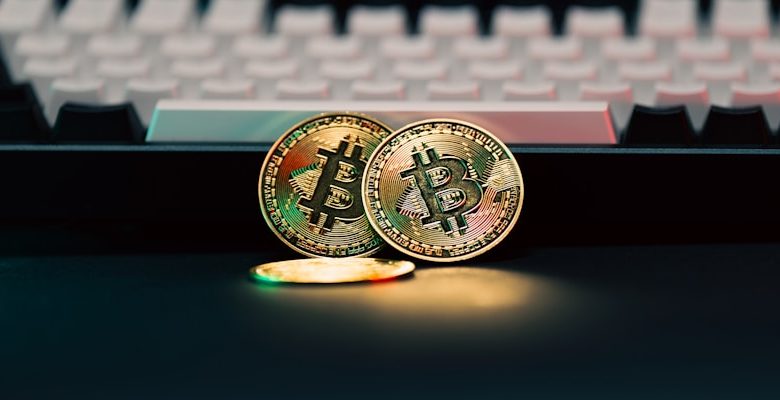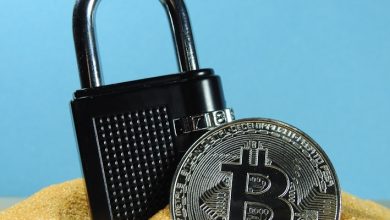Advanced Techniques for Securing Your Crypto Exchanges

- Understanding the Importance of Security Measures in Crypto Exchanges
- Implementing Two-Factor Authentication for Enhanced Protection
- Utilizing Cold Storage Solutions to Safeguard Your Assets
- The Role of API Security in Preventing Unauthorized Access
- Regularly Updating and Patching Your Exchange Platform
- Educating Yourself on Phishing Scams and Social Engineering Tactics
Understanding the Importance of Security Measures in Crypto Exchanges
Understanding the importance of security measures in crypto exchanges is crucial for protecting your digital assets. With the rising popularity of cryptocurrencies, hackers are constantly looking for vulnerabilities to exploit. This makes it essential for crypto exchanges to implement advanced security techniques to safeguard users’ funds.
One of the primary security measures in crypto exchanges is two-factor authentication (2FA). This adds an extra layer of protection by requiring users to verify their identity through a second method, such as a text message or authenticator app. Additionally, encryption techniques are used to secure data transmission and storage, preventing unauthorized access to sensitive information.
Regular security audits and penetration testing are also vital to identify and address any weaknesses in the system. By conducting these assessments regularly, crypto exchanges can stay ahead of potential threats and ensure that their security measures are up to date.
Furthermore, implementing cold storage for storing the majority of users’ funds offline can minimize the risk of hacking attacks. By keeping the private keys offline, hackers have a much harder time accessing the assets, providing an extra layer of security for users.
Overall, understanding the importance of security measures in crypto exchanges is essential for ensuring the safety of your investments. By implementing advanced security techniques and staying vigilant against potential threats, users can protect their digital assets and trade with peace of mind.
Implementing Two-Factor Authentication for Enhanced Protection
Implementing two-factor authentication (2FA) is crucial for enhancing the security of your crypto exchanges. By requiring users to provide two forms of verification before accessing their accounts, 2FA adds an extra layer of protection against unauthorized access. This simple yet effective security measure significantly reduces the risk of potential breaches and unauthorized transactions on your exchange platform.
There are several ways to implement 2FA on your crypto exchange, including SMS-based codes, authenticator apps, or hardware tokens. SMS-based codes are the most common method, sending a unique code to the user’s phone that they must enter along with their password. Authenticator apps like Google Authenticator or Authy generate time-sensitive codes that users input for verification. Hardware tokens, on the other hand, provide a physical device that generates codes for verification.
By incorporating 2FA into your exchange platform, you can significantly improve the overall security of your users’ accounts. It serves as a deterrent to potential hackers and adds an additional barrier to unauthorized access attempts. Additionally, 2FA can help prevent account takeovers and protect sensitive information from falling into the wrong hands.
In conclusion, implementing two-factor authentication for enhanced protection on your crypto exchange is a critical step in safeguarding your users’ accounts and assets. By requiring multiple forms of verification, you can significantly reduce the risk of unauthorized access and potential security breaches. Consider offering 2FA as an optional but highly recommended security feature for your users to enable and protect their accounts effectively.
Utilizing Cold Storage Solutions to Safeguard Your Assets
Utilizing cold storage solutions is a crucial step in safeguarding your assets on crypto exchanges. Cold storage involves storing your cryptocurrency offline, making it less vulnerable to hacking and cyber attacks. By keeping your digital assets in cold storage, you can protect them from online threats and unauthorized access.
One of the most popular cold storage solutions is hardware wallets, which are physical devices that store your private keys offline. These wallets are considered to be one of the most secure ways to store cryptocurrency, as they are not connected to the internet and are therefore less susceptible to hacking.
Another option for cold storage is paper wallets, which involve printing out your private keys and storing them in a secure location. While paper wallets are a cost-effective solution, they are not as convenient as hardware wallets and may be more vulnerable to physical theft or damage.
In addition to hardware and paper wallets, some crypto exchanges offer their own cold storage solutions for users. These exchanges typically use a combination of offline storage and multi-signature technology to ensure the security of their users’ funds.
Overall, utilizing cold storage solutions is an essential part of securing your assets on crypto exchanges. By taking the necessary precautions to keep your cryptocurrency offline and out of reach of hackers, you can minimize the risk of losing your funds to cybercrime.
The Role of API Security in Preventing Unauthorized Access
API security plays a crucial role in safeguarding crypto exchanges against unauthorized access. By implementing robust security measures, such as authentication and encryption, exchanges can prevent malicious actors from gaining access to sensitive data and funds.
One key aspect of API security is the use of cryptographic protocols to ensure that data transmitted between clients and servers remains confidential and secure. Additionally, implementing access controls and rate limiting can help prevent unauthorized users from overwhelming the system with excessive requests.
Furthermore, regular security audits and penetration testing can help identify and address vulnerabilities before they can be exploited by attackers. By staying proactive and vigilant, crypto exchanges can stay one step ahead of potential threats and protect their users’ assets.
In conclusion, API security is a critical component of securing crypto exchanges and preventing unauthorized access. By implementing best practices and staying informed about the latest security threats, exchanges can create a safe and secure trading environment for their users.
Regularly Updating and Patching Your Exchange Platform
Regularly updating and patching your Exchange platform is crucial for maintaining the security of your cryptocurrency transactions. By staying up to date with the latest software releases and security patches, you can ensure that your platform is protected from potential vulnerabilities.
One of the best practices for securing your Exchange platform is to set up automatic updates for your software. This will help to ensure that you are always running the latest version of the Exchange software, which often includes important security updates. Additionally, regularly checking for and applying patches to your platform can help to address any new security threats that may arise.
In addition to updating your software, it is also important to regularly review and update your security settings. This includes configuring firewalls, implementing multi-factor authentication, and regularly changing passwords. By taking these steps, you can add an extra layer of security to your Exchange platform and help to protect your cryptocurrency assets from potential threats.
Overall, regularly updating and patching your Exchange platform is a critical aspect of securing your cryptocurrency transactions. By staying vigilant and proactive in maintaining the security of your platform, you can help to minimize the risk of cyber attacks and protect your assets from potential threats.
Educating Yourself on Phishing Scams and Social Engineering Tactics
It is crucial to educate yourself about phishing scams and social engineering tactics to enhance the security of your crypto exchanges. Phishing scams involve fraudulent attempts to obtain sensitive information, such as passwords and financial details, by posing as a trustworthy entity. On the other hand, social engineering tactics manipulate individuals into divulging confidential information or performing certain actions.
One way to protect yourself from phishing scams is to always verify the legitimacy of emails, messages, or websites before providing any personal information. Be cautious of unsolicited communications requesting sensitive data or urging urgent action. Additionally, enable two-factor authentication (2FA) on your exchange accounts to add an extra layer of security.
When it comes to social engineering tactics, be wary of individuals or organizations trying to manipulate you into revealing sensitive information. Avoid sharing personal details or login credentials with unknown parties. Stay vigilant and trust your instincts if something feels off or too good to be true.



